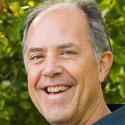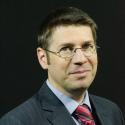2021 Disciple-Making Leaders (Foundational) Network
- Image

The aim of the Disciple-Making Leaders Network: Foundational Track is for each participant to develop biblical convictions about leadership and disciple-making, so that by the end of the Forum they understand their calling as leaders to build relationships that help God’s people become mature. A key component of this Network will be small group interaction, discussion, and time set apart for Q&A throughout the four days of the Forum, which will help deepen participants’ learning. The Network will also include lectures on key biblical material and discussion of practical examples. Participants will be encouraged to develop practical strategies for becoming more effective in disciple-making.
Applicants should be those involved in Christian leadership (at any level) who desire to develop maturity in the members of the body of Christ and are willing to grapple honestly with their responsibility to make disciples. Prior preparation will be set for all applicants.
Applicants should be leaders who desire to develop maturity in the members of the body of Christ and are willing to grapple honestly with the responsibility to make disciples. This Track is designed for those who have NOT attended the European Leadership Forum Disciple-Making Leaders Network in previous years.
Network Leadership
Network Speakers
Zala Cempre was born and raised in Slovenia. She lives in the capital, Ljubljana, where she serves in her local church. Her focus is discipling kids, youth, and young adults. She is also part of a Christian youth organization called Josiah Venture, where she serves as a youth ministry trainer… Read more
Terry English is a leadership and organisational development coach who seeks to help leaders to “love growing their organisations”. He currently lives in the Czech Republic and has equipped ministries and leaders across Central and Eastern Europe for the past 27 years. In his free time he… Read more
John Glass was born of American parents in Paris, France and raised in Geneva, Switzerland. In 1976, at the age of 19, John backpacked for 6 months from Switzerland to India in search of life’s answers and was led to Christ by a missionary in New Delhi. He has served as a church-planter in… Read more
Leroy Goertzen is a professor at Corban University in Salem, Oregon, where he teaches theology, church ministry, Christian leadership, and doctoral research. He is the director of Corban’s Doctor of Ministry Program and Kairos, an innovative five-year B.A. to M.Div. program designed to equip… Read more
Rick Hill is a speaker, author and leader based near Belfast, Northern Ireland. Rick serves as Executive Secretary of the Council for Mission in Ireland within the Presbyterian Church. He is the author of Deep Roots of Resilient Disciples and serves as an elder in Carnmoney Church. Rick is… Read more
Jay Mosser has served in pastoral roles for 43 years – about 20 years in various assistant pastor capacities and the rest as senior pastor. Through those years he has served in three churches ranging from smaller (less than 50) to larger (about 1,000). Along the way he has worked with children,… Read more
Greg Ogden retired from professional church leadership in 2012 and now lives out his passion of speaking, teaching, and writing about the disciple-making mission of the church. Most recently Greg served as Executive Pastor of Discipleship at Christ Church of Oak Brook, Illinois in the Chicago… Read more
Emanuel Tundrea completed his PhD in software engineering at Polytechnic University of Timisoara, Romania, in conjunction with the University of Nice, France, and then he earned his MA in Pastoral Theology in Oradea. In 2001, he joined the staff at Emanuel University of Oradea where he is… Read more
Network Programme
Sunday, 16 May
Sometimes people think about the Christian life in the same way they buy a car. What model do I like? What optional equipment best fits my lifestyle? Do I need a rugged vehicle or something that primarily looks good? The Bible calls every believer to "grow in the grace and knowledge of our Lord and Savior Jesus Christ" (II Peter 3:18). We call that "discipleship," a Holy Spirit-driven and non-optional process that is the subject of both warm encouragement and strong warnings in the book of Hebrews, our text for this opening session.
During the years of 13-25, most habits and life-choices are made, including the decision to become a follower of Christ. Studies show that 90% of professions of faith are made before the age of 21. Without youth ministry there will be very few adults and families in the church in the years to come. So how can we be intentional in discipling this generation? What is important to know when we interact with them and what are some practical ways to disciple them? In this session questions like these will be addressed. We will also seek to understand best practices and mistakes that are made in discipling teens and young adults, enabling you to create a strong disciple-making relationship with young people.
Monday, 17 May
This session will explore some biblical images and metaphors for discipleship that help to provide us with a strong framework for spiritual formation. Through unpacking this overview, we will consider how resilient disciples are formed and what foundations we need to build on in the discipleship of others.
What is the biblical model for making disciples? What are the essential elements of a multiplying discipleship group? This session will cover discipleship in the context of a micro group (3-4 members). It will discuss the biblical principles that underlie discipleship, including how Jesus modeled for us relational life investment in a few, and how each participant can apply these principles in their individual context. It will also help discipleship leaders to set an expectation of commitment and honest engagement with God’s word, as well as to find a transferable Bible-based curriculum that is relevant to their needs.
Tuesday, 18 May
Our current socially distant context has created many challenges, but also provided us with new opportunities. This session will examine how we can continue to follow Jesus’ command to make disciples even when it is hard to meet in person. If Paul could do it from prison, we can for sure do it from the comfort of our homes!
Everyone who disciples others knows the special challenge of encouraging spiritual growth in those closest to us – our spouses, children, grandchildren, close associates, and/or good friends. As much as we value these close, intimate relationships, they do present a unique challenge to discipleship. How can we facilitate spiritual growth without violating relational boundaries or succumbing to relational over-familiarity? This session will encourage us to actively pursue the spiritual good of those close to us, and offer practical suggestions on how we might do that.
Wednesday, 19 May
Europe today has wandered far from its roots in the Protestant Reformation. The goal of this session is to address the challenges of discipling new believers who are more secular in their worldview than ever before. It will address: (1) The post-Reformation spiritual catastrophe in Europe and why it happened; (2) keys to changing that through robust discipling and church-planting; and (3) a 2020 case study from Geneva, the city of Calvin.
We learned that there is no shortcut to maturity and there is no shortcut to mature leadership. All of us embark on life’s journey with a variety of backgrounds and experiences that affect the progress we make in our growth. All of us are led by God to make disciples in different contexts. One thing is sure: no matter how much we know, or what our spiritual, psychological, or emotional heritage might be, it takes time to mature and it takes perseverance in the long term to make disciples. In this last session we will explore:
- How can we continue to grow as disciple-makers?
- What are the next steps to springboard to fruitful ministry?
We plan to end by forming cohort groups to keep one another accountable to the plans we've made and to spur each other on throughout the year and then entrust each other in God’s providence in prayer.








